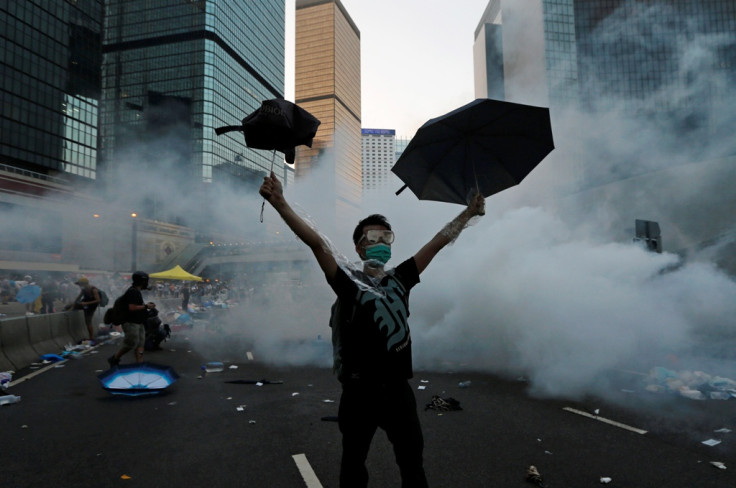Hong Kong protest leaders ready to stop paying taxes and organise rent strikes

As Pro-Democracy protesters in Hong Kong discuss their next move, some of the movement's leaders have suggested withholding taxes as a way to "block government", Reuters reported.
Benny Tai, one of the founders of the movement, wrote in the International New York Times: "Blocking government may be even more powerful than blocking road.
"Refusal to pay taxes, delaying rent payments by tenants in public housing ... along with other such acts of non cooperation, could make governing more inconvenient."
Leaders of the Hong Kong Federation of Students will decide in the next week whether to call on protesters to clear the camps in the city's main thoroughfares, after more than two months of demonstrations.
The discussions are taking place a few days after some of the founders of the protest, known as Occupy Central or the Umbrella Movement, announced their decision to surrender, admitting that their participation in the movement in occupied areas may legally constitute a crime.
According to local reports, police are expected to clear the streets in the Admiralty area, near the government headquarters in eastern Hong Kong. However, some students seem unlikely to return to their homes.
"After more than two months here, many see this place as their home," said a demonstrator. "They won't leave because we haven't achieved anything."
Thousands took to the streets of Hong Kong in September to protest against China's ruling on the next Hong Kong chief executive election in 2017.
According to Beijing, Hong Kong's potential candidates could be chosen by locals but also have to be vetted by a Chinese nominating committee. Contenders need to secure support from at least 50% of the members of the committee and those rejected will not be able to run in the election, on grounds of national security.
The decision enraged thousands of democracy supporters, who fear China will use the committee to weed out the candidates it disapproves of.
Hong Kong was a British colony until it was given back to China in 1997, with the promise the country would be given autonomy and full freedom in choosing its leaders, under the principle known as "One Country, Two Systems".
According to this principle, Hong Kong would retain its established system for at least 50 years after reunification.
© Copyright IBTimes 2025. All rights reserved.




















